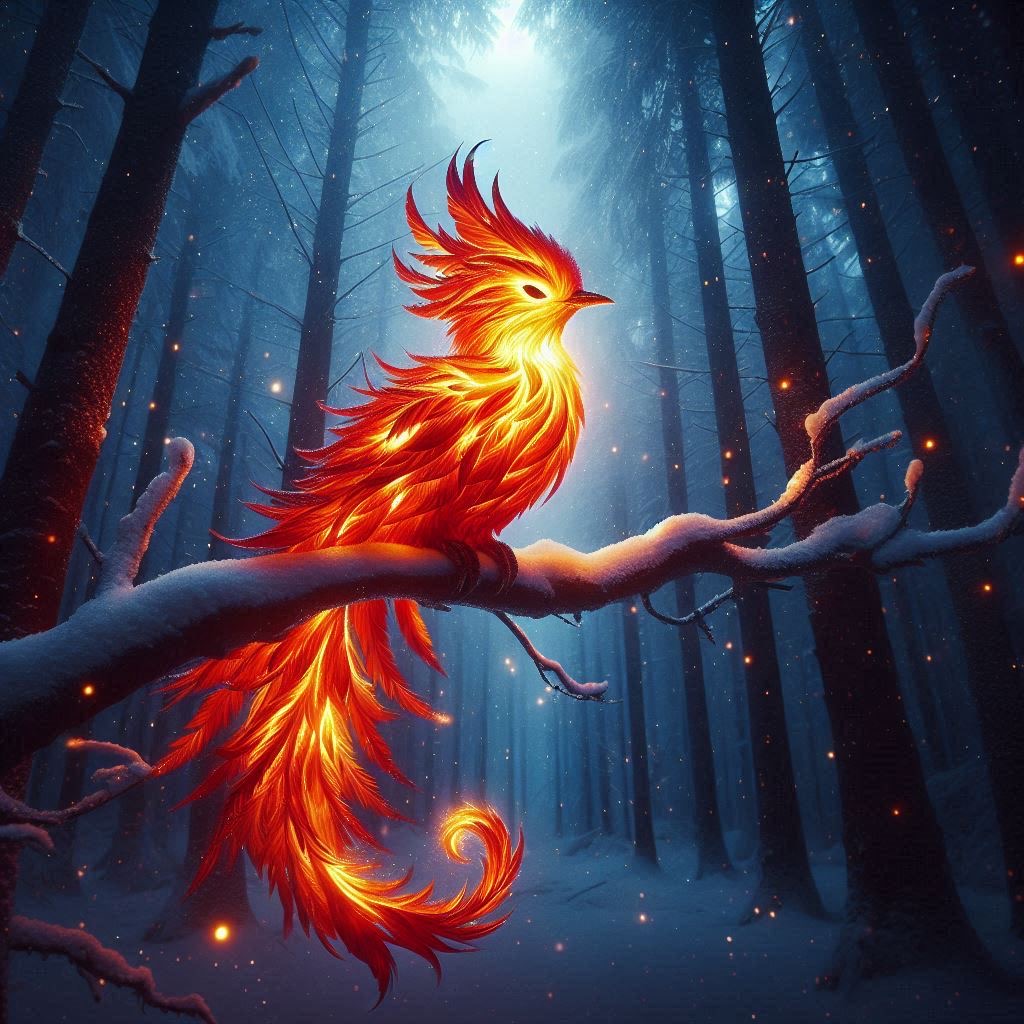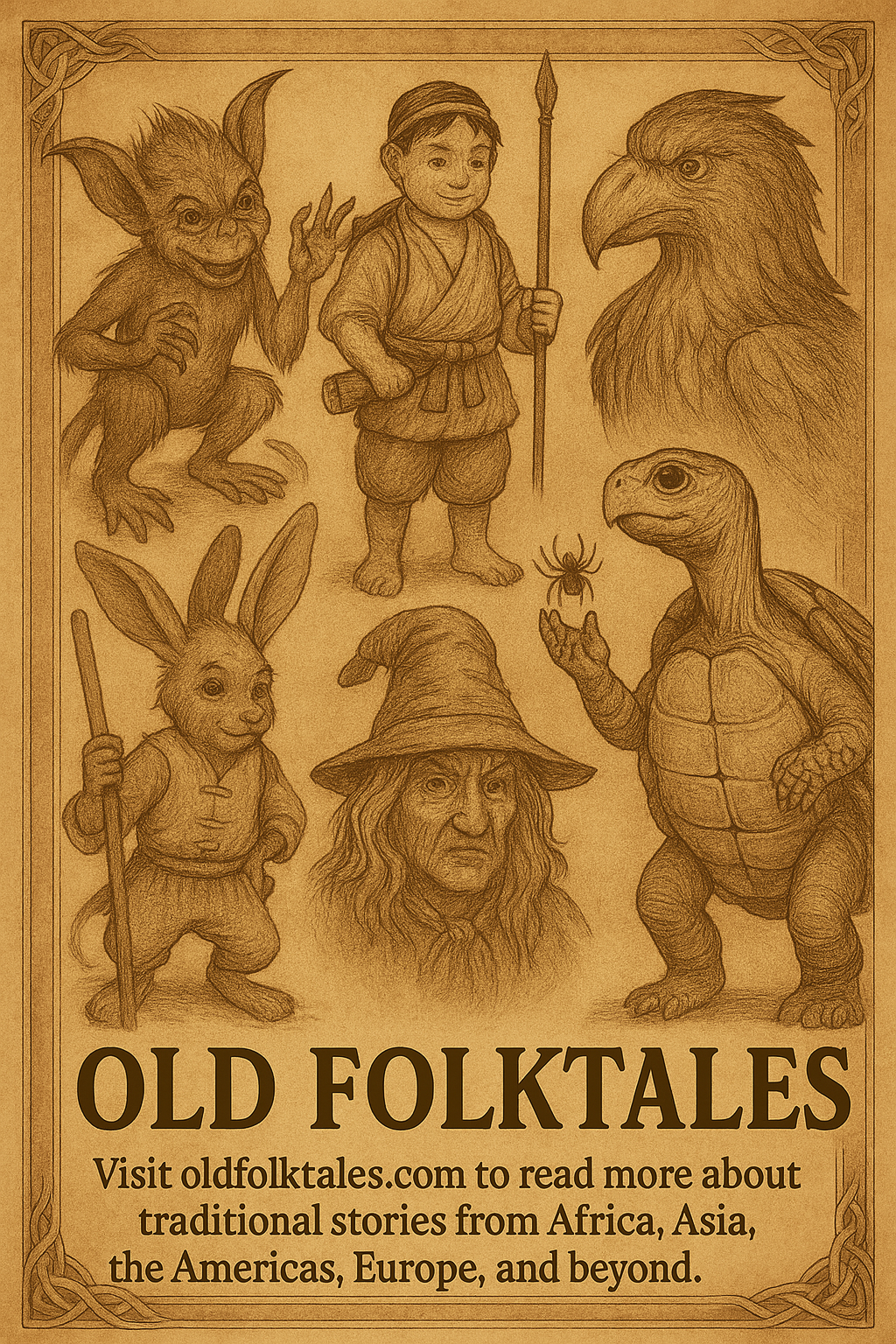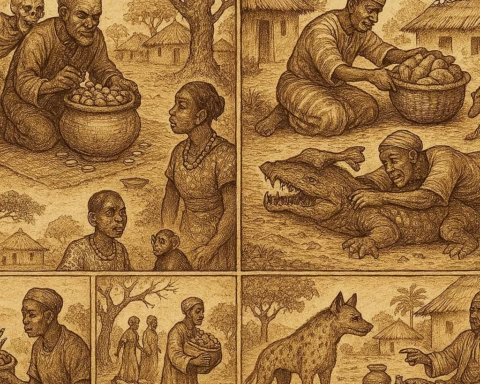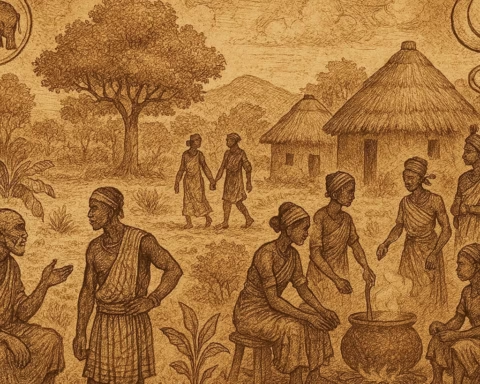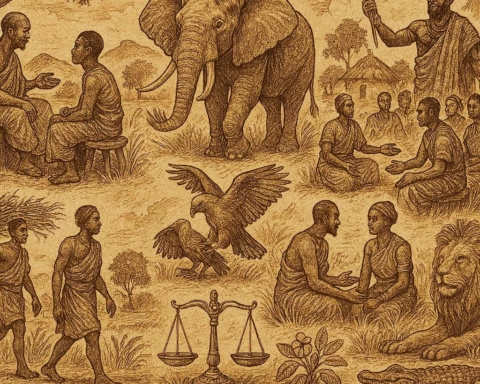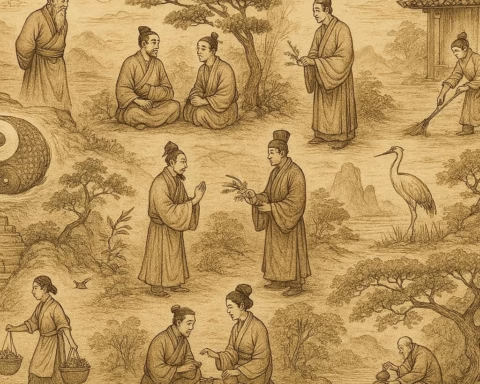The Mysterious Glow in the Winter Night
Long ago, when the forests of Rus stretched endlessly and deep as midnight, and the rivers carried songs older than the oldest babushka, there lived a young prince named Yuri. He was neither the strongest nor the wisest of his brothers, but his heart burned with a restless longing for something beyond his father’s gilded halls. One winter’s night, when frost painted the windows like white lace, a strange glow appeared in the palace garden. It shone gold and red as if a piece of the sun had fallen to earth. The guards swore they saw a bird with feathers like living flame, a crest of molten gold, and eyes as deep as midnight wells. “The Firebird,” whispered the old nursemaid, crossing herself. “A blessing or a curse. If she watches you, your life will change.” Yuri could not sleep. The thought of such beauty set his heart racing. At dawn, he ventured into the orchard covered with snow, bow in hand. There she was perched on an apple tree covered with frost, glowing against the pale sky. She did not flee. She only watched him, tilting her head, her silence deeper than the winter stillness. Something in her gaze made Yuri’s hands tremble. But the stories told of the Firebird’s power. Its feathers could light the darkest night and its song could heal the gravest wound. He loosed an arrow. It did not strike. Instead, a single golden feather floated down, warm in his palm despite the cold. The Firebird took wing and vanished into the dawn, leaving Yuri with a heat that seared not his skin but his soul.
The Tsar’s Challenge and the Journey Begins
When his father, the tsar, saw the feather, his eyes gleamed. “Bring me the Firebird, and you shall inherit the throne. Fail, and you will leave my house forever.” So Yuri set forth through pine forests that whispered warnings, across frozen rivers that groaned beneath him, into lands where the wind itself seemed to speak in riddles. Days turned to weeks. His boots split and his cloak grew thin, yet the feather’s glow kept him moving. One night, he came upon a hut standing on chicken legs, the dwelling of Baba Yaga. Her eyes were sharp as broken glass, but she smiled with too many teeth. “I know why you have come,” she said. “To take what is not yours.” Yuri’s voice was steady. “I seek only what will fulfill my father’s command.” “Ha!” She spat into the fire. “Many seek the Firebird for glory. Few seek her for love or mercy. Tell me, prince, why do you?” Yuri hesitated. “Because I cannot forget her gaze. It was not the promise of riches nor the crown. It was as if she asked me to follow.” Baba Yaga’s smile turned knowing. “Then you may yet succeed. But the Firebird will not be caught by force. She will test you as the dawn tests the frost. Fail her and she will watch you burn to ash.” She gave him three gifts: a silver bridle, a loaf of black bread, and a feather from her own hearth’s raven. “These will serve you if you remember to give before you take.”
The Firebird’s Test of Heart and Endurance
At last, Yuri reached the orchard of the Firebird. The trees were heavy with apples of pure gold, and there she sat, silent as before. Her light bathed the snow in red and amber. He stepped forward, remembering Baba Yaga’s words. Instead of raising his bow, he laid the bread on the ground. The Firebird hopped closer, her eyes on his. Then he held out the silver bridle, not to bind her but to offer as one might offer a gift to a queen. She touched it with her beak, and in that instant, her voice filled the air, not a song but a whisper like wind through the birches. “Three times you will face the fire. Endure it and you will rise. Flee it and you will vanish like smoke.” Before he could speak, flames engulfed him hotter than any forge. His flesh burned and his vision failed. Then he awoke whole, lying on soft grass where snow had been. The Firebird was gone, but his hands were filled with golden apples.
Return and Redemption
When Yuri returned, the tsar reached for the apples greedily. But Yuri held them back. “These are not yours, Father,” he said. “They are a gift freely given, not a prize to be stolen.” The tsar’s face darkened, but before he could speak, a glow filled the hall. The Firebird appeared upon the rafters, silent but for the whisper in Yuri’s mind. “You have passed the first trial.” With a sweep of her wings, she was gone, leaving behind the golden apples and a prince whose heart had been tempered like steel in fire.
The Timeless Lesson of the Firebird
The Firebird’s silent watch teaches that some treasures cannot be claimed by force or greed. Only through patience, humility, and the courage to face trials without turning away can one earn the gifts of the spirit world. In every life, the fire will come. Those who endure will find themselves reborn, their hearts stronger than before.
Knowledge Check
(1) What is the moral of the folktale “The Firebird’s Silent Watch”?
The story teaches a lesson about humility and respect. It shows how pride and greed lead to loss, while patience and listening bring true renewal.
(2) What cultural group does the tale “The Firebird’s Silent Watch” come from?
This folktale originates from the Slavic tradition of Russia and Eastern Europe.
(3) Why did Ivan seek the Firebird’s feather?
Ivan sought the feather out of pride and desperation to bring fortune and fame to his family. This desire led to the Firebird appearing and testing him.
(4) How does the folktale “The Firebird’s Silent Watch” explain the Firebird’s role?
The story explains the Firebird as a spiritual guardian of balance and rebirth. It appears during times of trial to teach lessons about humility and respect for nature.
(5) Is “The Firebird’s Silent Watch” a ghost story, origin tale, trickster story, or spirit tale?
“The Firebird’s Silent Watch” is a spirit tale that reflects Slavic beliefs about magical creatures and the moral lessons they teach.
(6) Why is the tale “The Firebird’s Silent Watch” still meaningful to modern readers?
The story remains meaningful because it teaches timeless truths about humility, consequence, and the importance of living in harmony with nature.
Cultural Origin: This folktale comes from the traditional beliefs and storytelling practices of the Slavic peoples of Russia and Eastern Europe.
